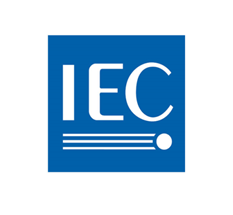For lithium batteries, there are some popular standards that Battery Lab tests do most often. In this sequel of articles, we are going to discuss these popular standards one by one. Today we are going to discuss the IEC 62133 – Safety requirements for portable sealed secondary lithium cells, and for batteries made from them, for use in portable applications – Part 2: Lithium systems

IEC 62133
Mandated by many IEC end-device standards, IEC 62133 is the de facto standard for international compliance. The standard includes four tests:
1. Molded Case Stress: Each fully charged cell is crushed between two flat surfaces. The force for thecrushing is applied by a hydraulic ram exerting a force of 13 kN ± 1 kN. The crushing is performed in amanner that will cause the most adverse result. Once the maximum force has been applied, or an abruptvoltage drop of one-third of the original voltage has been obtained, the force is released. A cylindrical orprismatic cell is crushed with its longitudinal axis parallel to the flat surfaces of the crushing apparatus.
To test both wide and narrow sides of prismatic cells, the second set of cells is tested, rotated 90° around their longitude in a axes compared to the first set.
2. External Short Circuit: Using charge method 2 to fully charge the cell. Each cell is then short-circuited by connecting thepositive and negative terminals with a total external resistance of 80 mΩ ± 20 mΩ, the cells remainon test for 24 h or until the case temperature declines by 20 % of the maximum temperature rise,whichever is the sooner.Test at 20 °C ± 5 °C only.
3. Free Fall: Each fully charged cell or battery is dropped three times from a height of 1,0 m onto a concretefloor.The cells or batteries are dropped to obtain impacts in random orientations.Cells/Batteries are examined 1 hour after dropping
4. Overcharging of Battery: This test is for secondary or rechargeable batteries only. It simulates an overcharge condition on a rechargeable battery: 2x the manufacturer’s recommended charge current for 24 hours. Then battery shall be monitored for 7 days for fire or disassembly.
Compared to the requirements of UN 38.3, these tests are relatively easy to pass.
Before you choose your lithium battery brand, please check carefully about this mandatory standard certification. Choose a popular brand like EverExceed to confirm the authenticity of this standard with confirming reliability.
tags :
scan to wechat:everexceed
